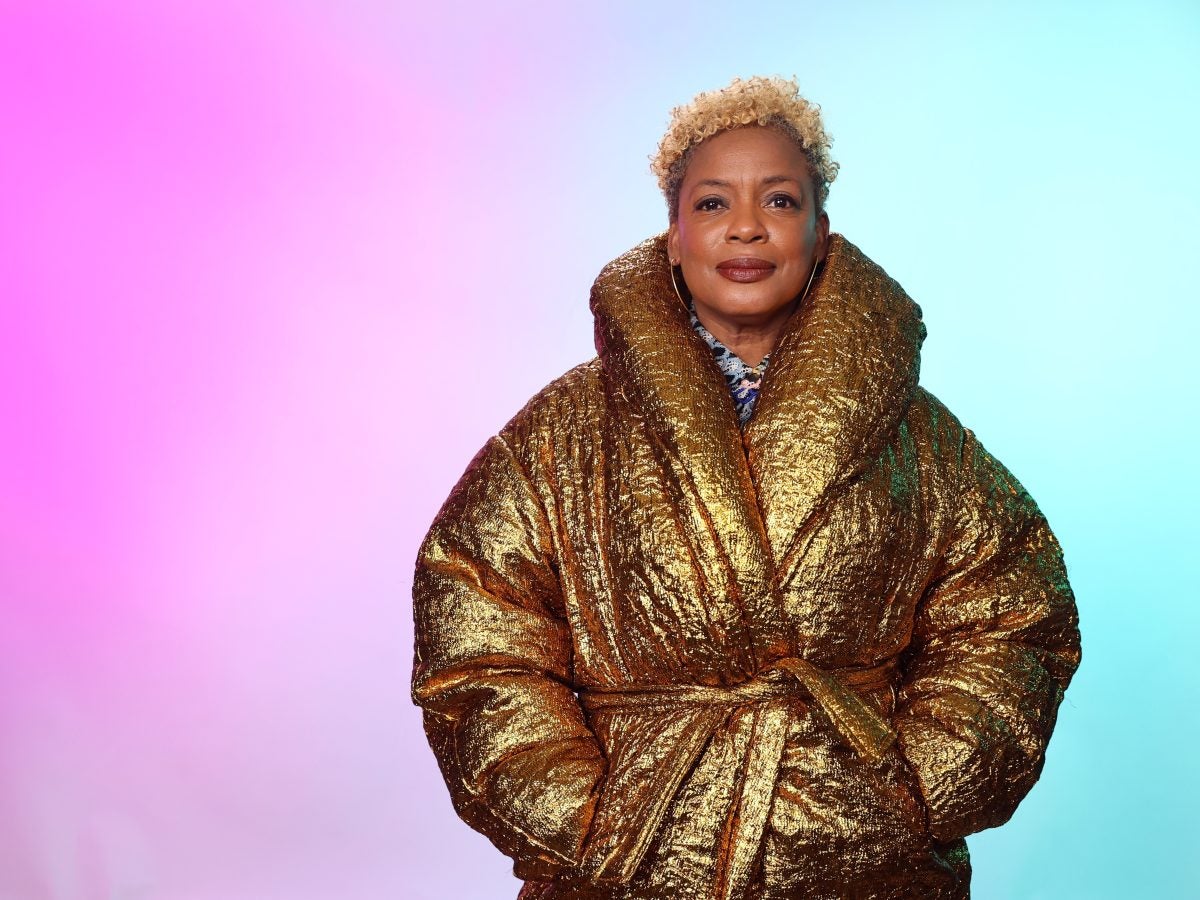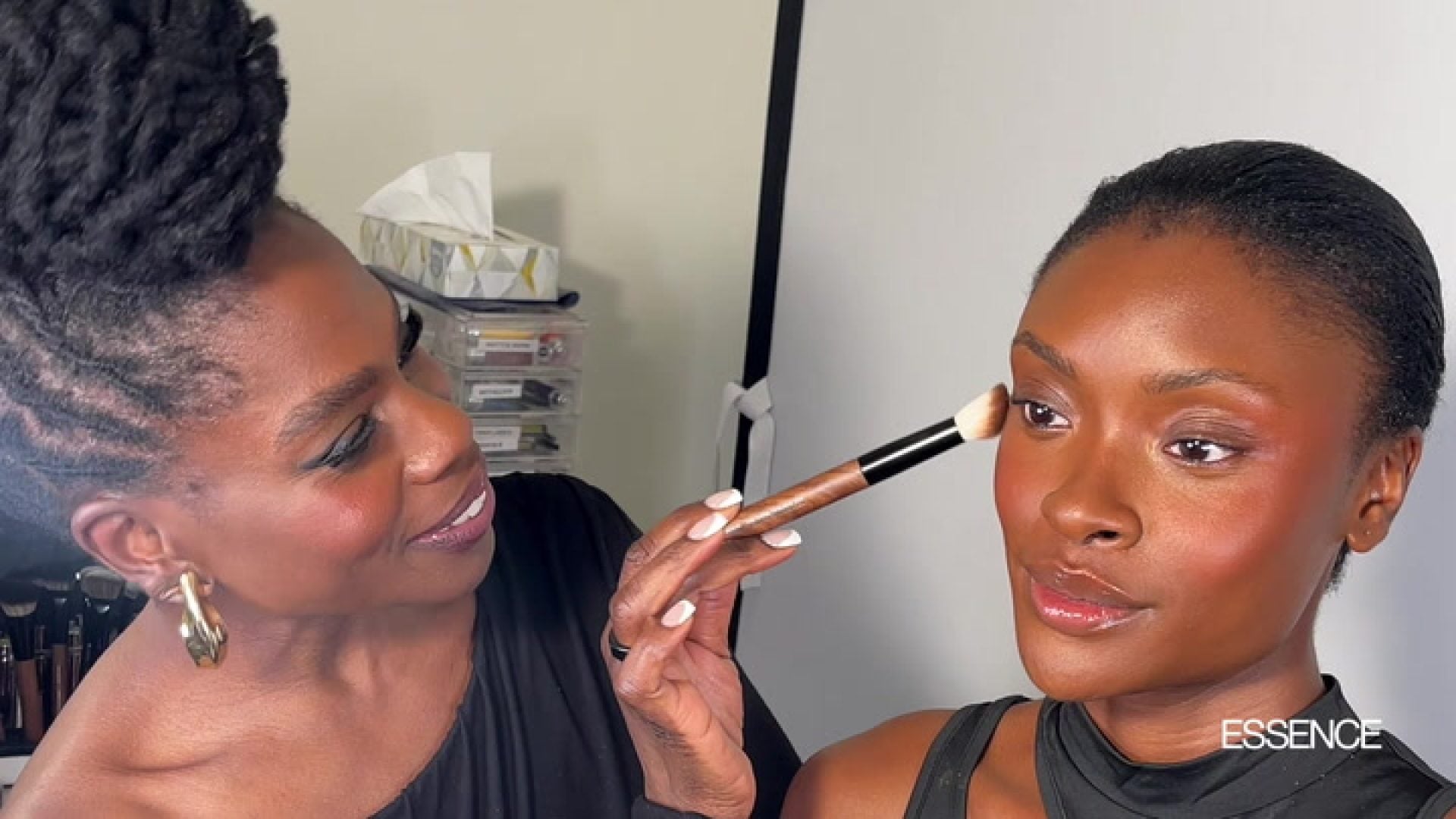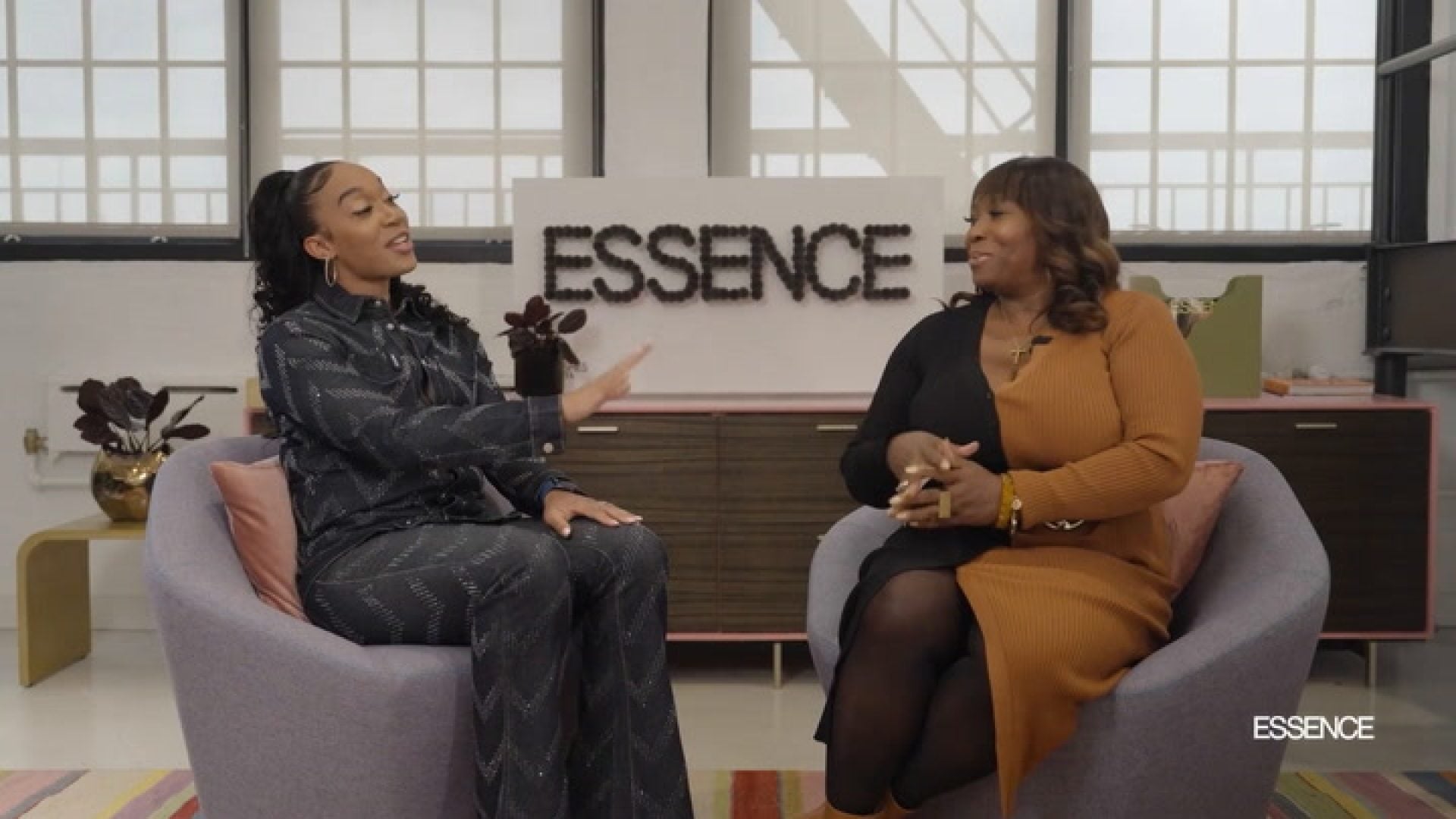
Aunjanue Ellis-Taylor has accumulated a range of screen credits most actors could only dream of obtaining. Men of Honor, Ray, The Help, If Beale Street Could Talk, The Clark Sisters: First Ladies of Gospel, Lovecraft Country, When They See Us, The Color Purple, and Origin are but a sprinkling of the critically acclaimed films and series she has lent her talents to. And yet, the actress who received an Oscar nomination for her portrayal of Oracene Price in 2021’s King Richard still says roles are hard to come by.
“I don’t have that life,” Ellis-Taylor tells ESSENCE when asked how she chooses her characters in the conversation below. “A lot of times I have to do what’s available to me so that I can eat, and other people can eat in my life.”
That’s perhaps why when it came to working with filmmaker RaMell Ross, co-writer and director of Nickel Boys, the adaptation of Colton Whitehead’s 2019 novel about the abuse African American boys at the segregated Arthur G. Dozier School for Boys in Marianna, Florida, experienced during the Jim Crow south, Ellis-Taylor somewhat took things into her own hands.
“I did stalk him,” she admits of her attempts to track down the budding filmmaker after watching his 2018 documentary Hale County This Morning, This Evening. It’s a strategy she says she employed once again when she heard Ross was working on a narrative project that turned into the now Golden Globe-nominated film Nickel Boys.
“It didn’t matter what it was,” says Ellis-Taylor. “I just wanted to be in it, and I expressed that. Ultimately, I got the job and I got to stalk him in person.”
Here Ellis-Taylor talks about working with emerging filmmakers and who she’s got her eye on next as well her push for roles and projects that center Black women.
You said that you stalked RaMell Ross into working with you. What exactly happened?
I did stalk him. That’s exactly what I did. I saw Hale County and I just ran out of words. I felt like I was meeting someone who I should have known already, and I knew that he taught at Brown, it’s my alma mater, and I called the school, and I asked to speak to him and they said they’d give him a message (laughs).
Did they know who you were?
They didn’t care. They’re like “this crazy lady is asking to speak to you,” it was so ridiculous. And then I emailed him on those emails that those professors never check and of course I never heard anything, but I tried.
So how did we land here? How did you get the role in Nickel Boys?
Well, you know, maybe the universe was like, “let me throw you a little something.” A couple years later, I heard that he was about to do something narrative. I don’t know if I knew that it was Nickel Boys, I hadn’t read the book, but I knew of the book’s reputation, but it didn’t matter what it was. I just wanted to be in it, and I expressed that. Ultimately, I got the job and I got to stalk him in person.
There’s been so much conversation about the uniqueness of the first-person perspective of the film. Did you know about that going in and what did RaMell express about his approach to the screenplay and what he wanted to accomplish?
I didn’t know that he was going to shoot it that way. I read the script, and I felt like there was something missing, there was something wrong, but, you know, [I’m thinking,] “he’s a first-time director-writer so when I get on set, I’ll tell him that they left that out.” Little did I know. I’d be like, “yeah, but when we do the other coverage,” and he’s like, “there is no coverage. It’s just you.” I didn’t find that out until I got to work the first day.
How did that change your process as an actor?
It didn’t. It didn’t change it, and I think that was the best thing that could have happened because I didn’t come in with any sort of presupposition or expectation or overconfidence in what I was going to do when I acted in these scenes. I couldn’t rely on anything. It was very destabilizing — very destabilizing — and I think that was good because she is destabilized. She has the ground taken from under her feet, and that insecurity, I just used it, because that’s how I felt.
Looking at your most recent films, it seems you have a great picker. What factors go into you deciding on a role?
I don’t have a lot of scripts to choose from. I don’t have that life. I get a few things here and there. I think I can say better what I don’t do rather than what I do because a lot of times I have to do what’s available to me so that I can eat and other people can eat in my life. But I’ve chosen, lately, to not do something specifically because I felt like the women in it were afterthoughts. What I get a little exhausted with, and in terms of what I want to commit my time to, is doing things where women are the focus. That they are not amendments to something, that they are the constitution, and if I want to commit my time to that, I want to believe that for the writer that is very much what is driving it.
Someone asked me about Nickel Boys, “how does it feel to be in this when it’s so much about men,” or something like that. I was like, “mostly everything I do is that.” Like, when is it not that? Everybody’s not like this, but I’m usually in stories that are focused on men; I want to do something different now.
Courtney B. Vance talked to me about that with 61st Street and how much you advocated for your character.
I’m tired of fighting those battles, you know what I mean? It’s not just about me, it’s about the other women that I’m working with. It’s not just I need to be more full and present. All the women need to be more full and present. I’ve done jobs on a couple of things where I didn’t even see the other women that were on the show. Never saw them. Three leads on a show, three women and I never saw them. It’s crazy. I want to lean into things where that’s not the case.
I read that you’re working on scripts about Fannie Lou Hamer and Rosetta Sharpe. Do you see yourself playing the leads in those?
We shall see. I think that with Rosetta, whoever plays her, it’s not just going to be her, it’s Willie Mae Thornton. It’s Marie Knight who was her singing partner and also her girlfriend, for years. These women created the music that we call ours and that’s exciting. Fannie Lou Hamer, I’ve written that. That’s being produced by One Story Up. It’s a Roger Ross Williams company so we are pushing along. It’s my obsession and I’m hoping I’ll get it across the line soon.
Origin, I thought, was such a phenomenal film, and it was the first thing I thought of when I was trying to make sense of what was happening after the presidential election. Were you disappointed at all in the lack of recognition or conversation around the film?
What I wanted, and I feel like what Ava [DuVernay] wanted, if I can speak for her, is what Miss Wilkerson wanted. This language of caste contributing to our national conversation about who we are in this country, that we use the wrong language and because we use the wrong language, we’re not building the bridges that we need to build with each other. I think it’s a loss. The hope would have been for Origin to get all the awards and get all the attention, just really, honestly, because when that happens, people still talk about your movie, and then you get people to talk about what the movie is about, and it continues. So what I’m hoping is that it’s somewhere, because as we see there’s still work to be done. Origin, hopefully, will find its way in that work.
Since then, you’ve worked with RaMell and also Titus Kaphar on Exhibiting Forgiveness, can you talk a bit about your embrace of emerging filmmakers?
You know, it doesn’t really matter to me, but here’s the thing. Titus Kaphar is one of the most important voices in American art with his visual art. He’s really kind of, at this point, moonlighting a little bit as a film director. He has this whole other life as this incredibly respected and honored artist, and I dug him as a painter first, and then Exhibiting Forgiveness happened. My estimation of what RaMell was was a documentarian. I respected him and honored him as a documentary filmmaker, and now he’s doing this other thing that I’m a part of and I’m so proud of that, that I’m a part of the moves that these well-established artists in these other genres are making into this other world.
Is there anyone you have your eye on now that you’re hoping to work with?
Last year, there was a whole crop of young Black women filmmakers, one of them is Raven Jackson, who did All Dirt Roads Taste of Salt. I think she’s extraordinary, an extraordinary writer, an extraordinary filmmaker. I want to work with that girl.





